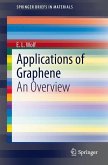The release of this second volume of CHIPS 2020 coincides with the 50th anniversary of Moore's Law, a critical year marked by the end of the nanometer roadmap and by a significantly reduced annual rise in chip performance. At the same time, we are witnessing a data explosion in the Internet, which is consuming 40% more electrical power every year, leading to fears of a major blackout of the Internet by 2020.
The messages of the first CHIPS 2020, published in 2012, concerned the realization of quantum steps for improving the energy efficiency of all chip functions. With this second volume, we review these messages and amplify upon the most promising directions: ultra-low-voltage electronics, nanoscale monolithic 3D integration, relevant-data, brain- and human-vision-inspired processing, and energy harvesting for chip autonomy. The team of authors, enlarged by more world leaders in low-power, monolithic 3D, video, and Silicon brains, presents new vistas in nanoelectronics, promising Moore-like exponential growth sustainable through to the 2030s.
The messages of the first CHIPS 2020, published in 2012, concerned the realization of quantum steps for improving the energy efficiency of all chip functions. With this second volume, we review these messages and amplify upon the most promising directions: ultra-low-voltage electronics, nanoscale monolithic 3D integration, relevant-data, brain- and human-vision-inspired processing, and energy harvesting for chip autonomy. The team of authors, enlarged by more world leaders in low-power, monolithic 3D, video, and Silicon brains, presents new vistas in nanoelectronics, promising Moore-like exponential growth sustainable through to the 2030s.
"CHIPS 2020 Volume 2 has sought to present the latest developments in the most critical and promising areas relevant to energy efficient electronics. ... This book is suitable for the student, researcher or recent graduate that wants to understand where the challenges lie in chips and for managers, investors and policy makers. It is suitable for all and is written with the issue of sustainability and engineering responsibility at its core." (EETimes Europe Analog, analog-eetimes.com, November, 2015)








